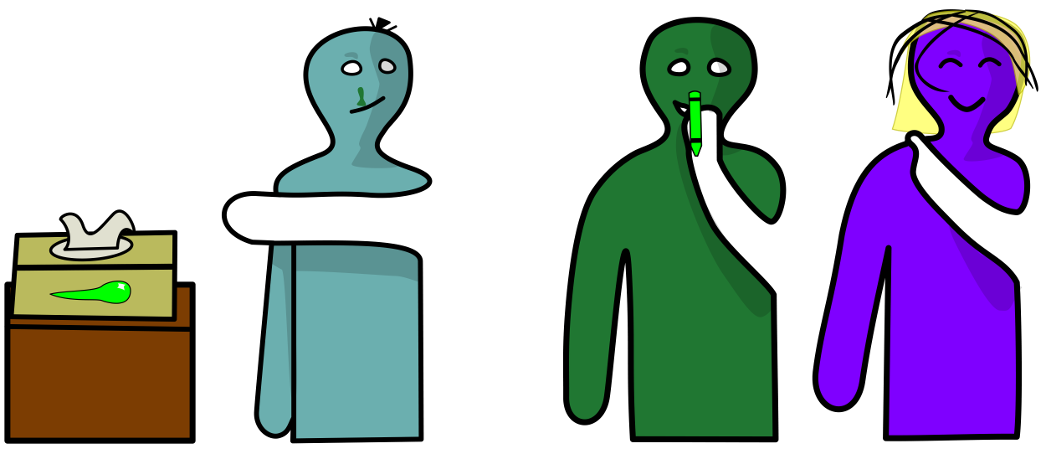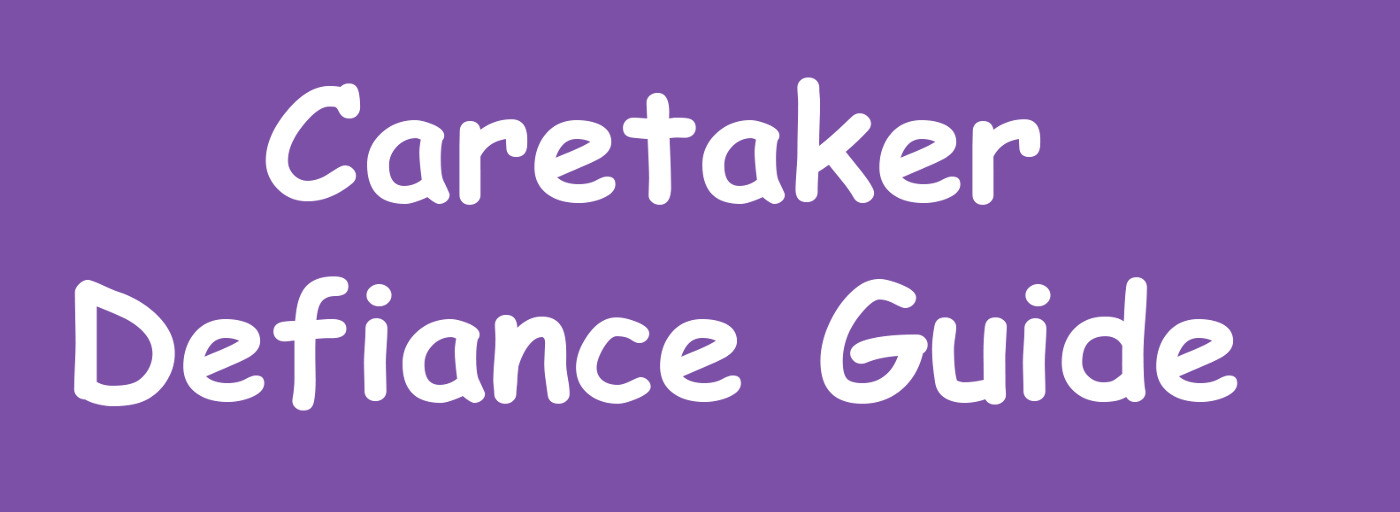Teasing
Sometimes Learners might try teasing you by doing things like:
- Handing you something that could help you be your best, then when you reach for it, pulling it away.
- Trying to get your attention for something that you think could be important, but it isn’t, and they are just making fun of you.
- Calling you dumb when you trust them as much as you would a Self Guider or Wise Leader.
- Telling you what you are, without knowing you well.
There are several kinds of Learners who do things like that:
- A Learner who is smart enough to realize, all on their own, that treating people that way will not make the world a better place, but wants to know what to do or say to get people to stop by acting that way. They think you might know.
- A Learner who doesn't know if it will make their environment a better, more thriving place.
- A Learner who is trying to unconventionally communicate something with you, but doesn’t know how to say it.
- A Learner who learned from someone they trusted that treating people this way is the valid way to teach people the lesson of, “You shouldn’t trust others to be a Self Guider.” They may believe the person they trusted will be able to work out whether it’s better or worse for the environment and change their mind.
- A Learner who might actually be bad and wants to make the environment worse on purpose.
Since you probably don’t know everything, you won’t know what kind of Learner they are unless they leave enough clues for you to figure it out. Since it would not be a good idea to treat people like they are dumb or bad, you should treat them as though they are smart and good first. Maybe start with Learner 1, then Learner 2, 3, 4, and finally 5.
What to do for Learner 1 (the Learner who wants to know what you are supposed to say in this situation):
You can say what a Self Guider or an Everything Knower told you to say, if you know one. Admit that you do not know what to say or do when someone does something like that, and that you don’t know what they are thinking. Say that you are sorry and ask if they want to play something else.
What to do for Learner 2 (the Learner who doesn’t know it’s bad):
You can stop giving them chances for now, and give them a longer and longer time for them to realize their mistake.
Try doubling the time between chances you give them:
- try once
- try a second time
- try again when playing later
- try again tomorrow
- try again after two days
- try again after four days
- try again in a week
- try again in two weeks
- try again in a month
- try again in two months
| Their Perspective When They Hand You Something and Pull It Back | Your Perspective When They Hand You Something and Pull It Back |
|---|---|
| “I wonder how long it will take them to stop reaching for the thing I’m handing them but pulling away.” | “If they let me down here, I might have to view them as a Pretending Person from now on, and that will limit the amount of good we can do together. I hope they realize that they are risking their reputation with me next time they hand it to me. I will still reach for it...” |
If they are not figuring it out, and you have already told them you don’t know what to say, then you have some more options:
- Treat them how they treated you.
- Ask a caretaker for help.
If you treat them how they treat you, they might realize why it’s bad, or they might not.
Asking a caretaker might help, but sometimes caretakers don’t think the other Learner is doing anything wrong. Some might even get mad at both of you!
What to do for Learner 3 (a Learner who is trying to unconventionally communicate an idea with you):
If someone is teasing you to tell you something, there are usually two ideas that they would try to tell you:
- That they view you as being in a lesser group than them.
- Something else that they think could help you be a better person.
If the idea is that you belong to a lesser group than them, then you can either see things their way or not.
If they are a Wise Leader, then you could see it their way. However, since a Wise Leader would probably not tease someone to get that person to follow them, then you should probably reject that idea and go back to what you were doing.
If it’s an idea of how you could change into a better person, then you have these two options:
- Think like a Wise Leader. They would find a nice way to tell you if they knew how. Think about what that might be, and perhaps, let them help you become a better person.
- Think that a person as good as you deserves to be told about it in a nice way, not by being teased. Choose not to accept their help.

Since there are so few people in the world who know nice ways to say things to other people without teasing, perhaps it would be OK to accept their help.
Try to think about how you have treated them in the past. You might have done something to them that wasn’t right. Maybe they are trying to communicate that it wasn’t for the best. Try not to do stuff like that anymore, and maybe say you are sorry.
What to do for Learner 4 (less smart Learners who leave the thinking to someone else):
They are interested in making the world better, but they are not making the connections between a person's future actions and the way they have been treated. They leave the connecting to someone else whom they believe in – probably not a Self Guider. A Self Guider would have taught the Learner the best method. Whomever this person learned it from is likely unwilling to try things another way. You can also be sure that they will be upset with the problems that come from treating people this way without connecting them back to their action. You can also be sure that if someone treated this person with the same policy they have used to treat others, they would not enjoy it. The person they believe in may be a Worker or Pretending Person.
If they don’t realize or pay attention to what effect it has on you, you could say something like:
- “I tried this game a lot and I don’t like it.”
- “When friends are playing together, I think they should do something they both like. I don’t want to play it anymore, but if you want, I could tell you if I find someone who does.”
- “My parents would be sad if they saw me playing this sort of game. Can we play a different game?”
What to do for Learner 5 (a Learner who’s trying to make the world a worse place on purpose):
Still try not to see them as bad, but try not to be around them anymore. Think about how you could improve the way you handle it if someone else in the future were to treat you like they have. If you see them several years in the future, ask them if there was anything you could have done differently.

